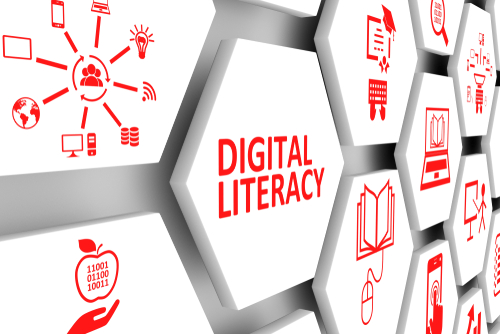“Digital literacy” and synonymous terms are frequently listed as a job requirement for many corporate positions. Even when it’s not explicitly spelled out, most office jobs require the ability to locate, evaluate, and communicate data through digital media.
But the specifics of what data and how to evaluate it and how to communicate it and which media are ever-changing.
What Do We Mean By ‘Digital Literacy’? It’s Changing
If you asked someone 20 years ago what “digital literacy” meant, you would likely have received a very different answer than if you asked someone today.
As technologies continue to develop and evolve, what was once cutting edge has become commonplace. This means that an aptitude that was highly specialized 10 years ago might be seen as foundational and baseline today.
Technological Advancements Drive Continual Change
The “digital literacy” of yesteryear—what used to refer to the ability to send an e-mail or use work-processing software— has changed. As Alex Christian writes in an article for BBC Worklife, digital literacy was traditionally a skill required of “knowledge workers—people who might use specific software at work, and need to be fluent in how to use it accordingly.”
The meaning has evolved significantly over time, though. Now, Christian says, “digital literacy means having the skills to thrive in a society where communication and access to information are increasingly done via digital technologies, such as online platforms and mobile devices.”
Digital literacy today means the ability to navigate a wide range of tools, both in the office and when working remotely, for not only doing one’s work but also collaborating while doing the work.
It’s not enough for employers and hiring managers to say they want “digitally literate” staff. That’s a cop-out, and it doesn’t guarantee that the digital literacy they get will be the digital literacy they want. Instead, it’s incumbent on employers to be thoughtful about their digital needs and specify what skills and experiences they are looking for.
Lin Grensing-Pophal is a Contributing Editor at HR Daily Advisor.

